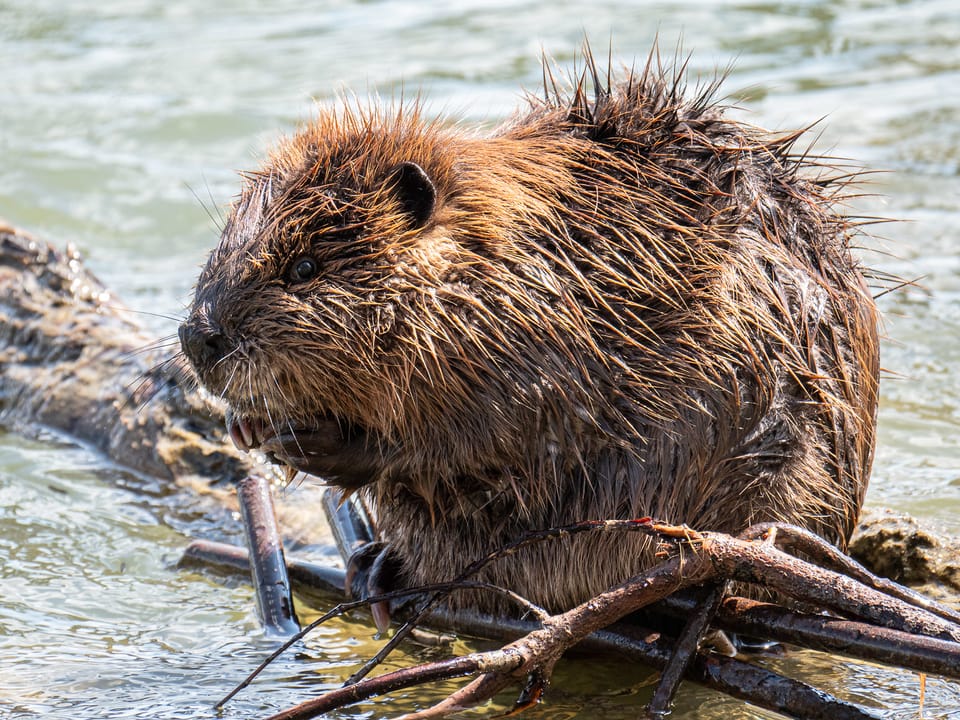EcoWest News, October 1, 2024

Welcome to EcoWest News, a weekly round-up of news and resources that you can put to use in addressing environmental issues and protecting the wild in your community.
Across the West
SaskPower is constructing its first community-scale renewable microgrid at Descharme Lake. Combining solar and battery with diesel as back-up, over 80% of the energy is expected to come from solar. [SaskPower]
In communities like Fort McMurray, “the energy transition represents not just a threat to their livelihood but a threat to their community and way of life”. Transitioning to sustainable jobs will require concrete, place-based plans, particularly in rural and single-resource communities. [The Conversation]
Alberta Ecotrust Retrofit Accelerator offers free coaching services and supply-focussed information sessions to guide building owners and managers of commercial and multi-unit residential buildings through making sustainable upgrades to their buildings. [Pembina Institute]
First Nations chiefs have gone to court to challenge the federal government’s decision to extend fish farm licenses for an additional 5 years. “Lots of boat traffic, viruses, fish die-off, fish escapes, sea lions being murdered – it’s a terrible industry,” says Dan Lewis, Clayoquot Action. [Watershed Sentinel]
The City of Vancouver-owned False Creek Neighbourhood Energy Utility is the first system in North America to capture heat from raw sewage and use it to power nearby buildings. [The Tyee]
Across Canada
A guide to geothermal energy, from heating individual buildings and districts to generating electricity. [Green Energy Futures, LinkedIn]
Three steps to cost-effective residential flood prevention and a fire-smart home. [Intact Centre]
Around the World
Scooping plastic waste from the ocean scoops up sea creatures as well. “Limiting plastic production and stopping plastic waste from entering the sea is the best long-term action we can take to realise a largely plastic-free ocean.” [Dialogue Earth]
Current fisheries practices are designed to ensure ongoing profits for private companies. What if we started prioritizing activities with a lower impact on entire ecosystems (e.g. size of boats and type of fishing gear) instead? [Anthropocene]
Future wildlife crossings will need to take into consideration that species are changing their migratory patterns or moving to new habitats due to warmer temperatures and climate extremes. Lightweight, portable structures may be part of the solution. [Inside Climate News]
Restringing existing electric power infrastructure with more powerful lines could double transmission capacity and be cheaper and quicker than building new power lines. [Anthropocene]
Four steps towards more sustainable aviation: remove contrail clouds; slow down flights, upgrade planes, and ensure they’re flying in their optimal range; scale up production of sustainable aviation fuel; and explore new technology (e.g. hydrogen airplanes). [Euro News]
Making a Difference
A forestry company dropped its plans to spray glyphosate over replanted forest in northeast Vancouver Island last year following First Nations and community protests. [Watershed Sentinel]
A 5-year-old salmon returned to its birthplace on Okanagan Lake, a 1,000 km migration to the Pacific Ocean and back thanks to Okanagan Nation Alliance’s efforts to create safe passages past dams and operate a hatchery. [IndigiNews]
Apartment dwellers, over half of Germany’s population, can install balcony solar panels feeding electricity directly into their home. On a sunny day, the panels can produce half a family’s daily power. [Grist]
Nature’s Wonders
Small but mighty, hummingbirds have amazing adaptive mechanisms to help them cope with their extreme lifestyle. [Knowable]
“Life as we know it on this planet wouldn’t exist without fungi. Almost everything that’s going on with the world, fungi are part of it.” There are 2.5 million species of fungi, more than 90% of which have never been scientifically described. [Atmos]
Lots of fabulous photographs this week: birds [Digital Photography Review], ocean creatures [Digital Photography Review], and jellyfish [Smithsonian]
Photo credit: https://www.flickr.com/photos/apmckinlay/49905009751
EcoFriendly West informs and encourages initiatives that support Western Canada’s natural environment through its online publication and the Nature Companion website/app. Like us on Facebook, follow us on Twitter or Mastodon, or subscribe by email.

Member discussion